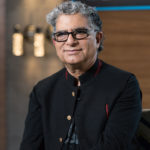In less than a year, Ethan Zohn went from being a cancer patient to a runner in the New York City Marathon. Not bad for a guy nine months into remission from Hodgkin’s lymphoma. Remission. That’s a good word for what Zohn has embarked on, post-illness. He certainly had a mission before the cancer. Now? “The whole thing reinforced that I’m doing the right thing with my life,” he says.
By any definition of success, Zohn had already achieved enviable results. He played professional soccer in Zimbabwe in the late ’90s. In 2002, he competed on CBS’s Survivor: Africa—and won. He used the $1 million in prize money to launch Grassroot Soccer, a foundation dedicated to educating African children about HIV/AIDS, which is rampant across the continent. To date, more than 340,000 children have completed the foundation’s educational curriculum, and the charity has partnered with 18 other organizations, including Nike and the Gates Foundation, to help raise money and spread the word.
Oh yes, and Zohn is also an author, with two best-selling children’s books about soccer and four more on the way. He’s co-host of Outside Today on Outside TV. He trains for marathons. And in 2009, he even squeezed a major illness into his busy schedule. (“When your doctors tell you to do something or you’re gonna die, you pretty much do it,” he says, half jokingly).
At first he was reluctant to go public with his cancer. But the downtime gave him prime soul-searching time. “My life was completely flipped upside down,” he says. “I was training for the New York City Marathon, 35 years old, healthy as can be. It punches you in the stomach. The doctors told me, ‘You have a good cancer! Ninety percent survival rate!’ And I’m like ‘Great.’ At first I figured people didn’t need to know the details of my life. Then I realized the details of my life could help, so I took my battle public.”
He dove in full-bore, posting online videos on People.com, blogging in frank language about what cancer treatment was really like, doing interviews—anything he could to raise awareness for Hodgkin’s. And it worked. “I got countless emails saying, ‘Because of you I went to the doctor and found out I had Hodgkin’s,’ or ‘My legs were itchy, but I didn’t know what it was until I saw you on Larry King Live.’ Those stories made it worth it.”
He also used the opportunity to get involved in another charity, Stand Up to Cancer, where cancer survivors team up with reality television “survivors” to raise funds for cancer research and awareness. He is also an ambassador and keynote speaker for Lance Armstrong’s LIVESTRONG Foundation. “Ultimately, the illness was a positive for me. I’m able to use it to do a lot of good.”
Still, Grassroot Soccer remains his passion project. The organization started in nine schools in Zimbabwe. Now they’re in 12 countries. This past fall, Zohn once again organized a team of 40 to run the New York City Marathon to raise money for the program. He had to skip the 2009 Marathon for obvious reasons, but in 2008 the team raised $120,000, enough to put 6,000 children through the charity’s curriculum.
Zohn knows he’s making a difference in thousands of lives, and that’s been one of his primary goals. But he understands that it’s challenging for the average person to get involved in a charity they believe in when many people are overscheduled as it is. Donating in a down economy can be equally challenging. But he has a few rules he uses to keep himself involved, and also to help bring in new blood to drive his causes forward.
Find your “make a difference” trifecta. If you want to motivate yourself to do more to make a difference, desire isn’t enough to keep the average person engaged, Zohn says. “Desire helps, but it helps even more if you tie the cause to an activity you love. You also need a personal connection to the cause.” For Zohn, those three elements came together like so: When he played soccer in Zimbabwe, he saw how many people in that country were infected with HIV/AIDS, even fellow players on his team. Later, while filming Survivor in Kenya in 2001, he played a spontaneous soccer game with a group of children near a village hospital. He eventually found out that all of them were AIDS patients. “That led me in: If I get this million-dollar prize, I’m going to use it to do something good through soccer. I saw the power of this sport. You put a soccer ball down on a street corner anywhere in the world, and you’ll instantly have 25 friends. It seemed natural to use that model to teach kids important lessons on life. Soccer is the universal language. It makes kids excited to participate.”
Push past the stats. Raising money is the biggest obstacle for any nonprofit. Zohn has found an effective solution. “You know, when people throw statistics at you, especially with HIV and AIDS, it seems like such a daunting problem. People are like, ‘What’s $25 gonna do?’ So I show them that these statistics are not just faceless numbers. They’re kids I’ve met. They’re men, athletes I played with. While I was on the Zimbabwe team, one player died of AIDS. And now? One-third of that team is dead—seven guys out of 22 since 1999. That’s just crazy. HIV is preventable. People are dying of something they don’t have to. So the personal stories make it that much more real when I talk to people. Combine that with a campaign that makes it easy for people to get involved and where they can see their money going to something that makes a difference.”
Maintain credibility where it counts. Grassroot Soccer trains pro soccer players to educate kids about HIV/AIDS through a skills curriculum designed around soccer, role-playing, games and music. But any potential donor might ask: How do you know it works? Zohn made sure. “We allocate funds to evaluate our program, applying scientific data to what we’re doing,” he says. “We’re up to 12 different evaluations that show significant results. It’s quantifiable proof.”
Shift your perspective (before you get sick). Time takes on new meaning when your life has been threatened. Zohn advises everyone to make a difference now, before something changes your mind for you. “In the past I used to look pretty far ahead. When cancer came along, my perspective on the universe shifted a bit. It’s so cliché, but you have to take advantage of each day, each moment. We’re on this planet for a very short time, and it’s not about how or when you leave it. It’s about making it a brighter place while you’re here.”






